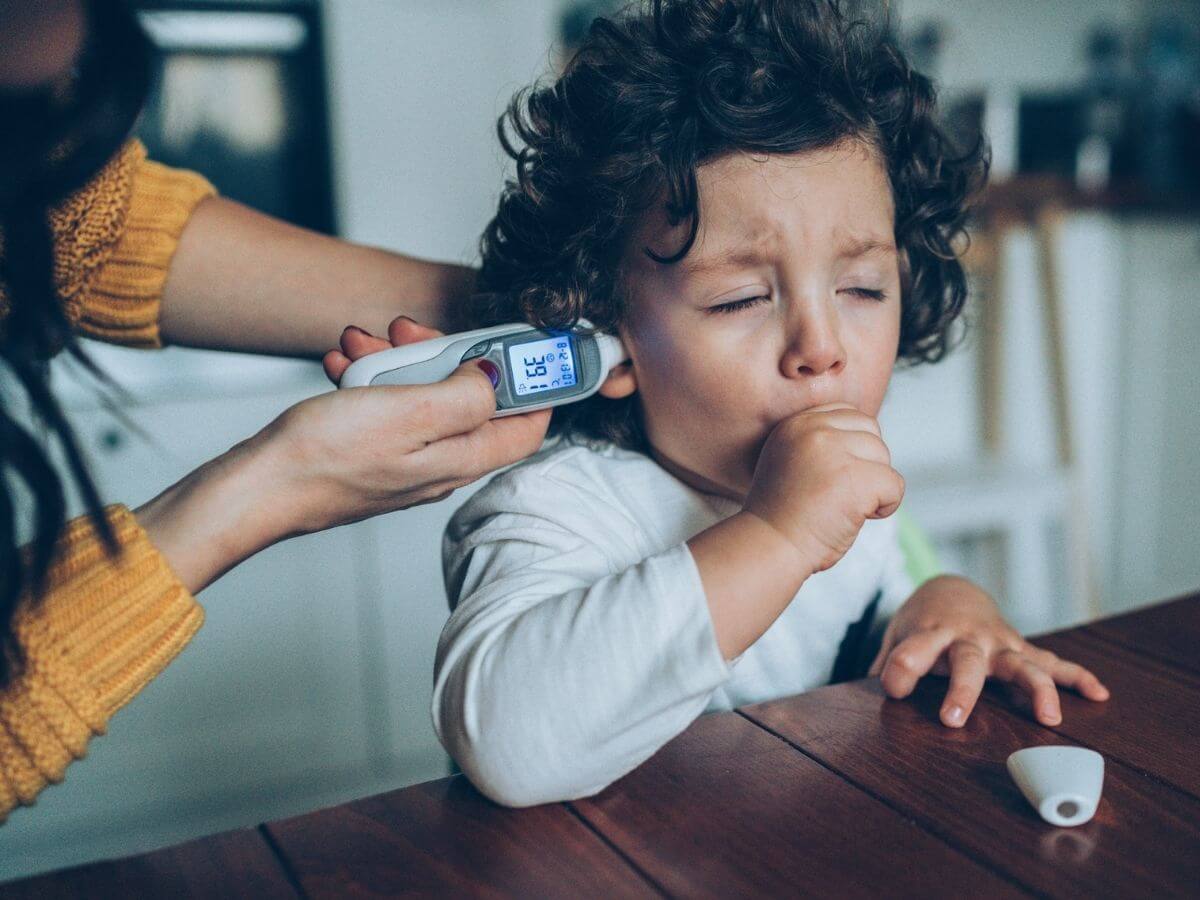Croup or COVID-19?

Croup is an infection of the upper respiratory system that can be caused by several different viruses. It most often affects young children. Older children and adults rarely get croup.
Many parents are familiar with croup and its telltale “barking” cough. It also causes what’s called stridor, which is a harsh sound that occurs when a person who has croup inhales.
As the COVID-19 pandemic continues, parents and other caregivers sometimes find themselves wondering if a child’s symptoms are caused by croup or COVID-19. Below are some helpful insights on these two illnesses.
Symptoms of Croup and COVID-19
Some of the symptoms of croup and COVID-19 overlap. However, there are also differences.
Croup symptoms include:
- Runny nose
- Sore throat
- Fever
- “Barking” cough
- Stridor
The cough and stridor caused by croup often are worse at night. This may be caused by a decrease in the body’s natural steroid levels, which allows swelling of the voice box to worsen.
COVID-19 symptoms include:
- Cough
- Stuffy or runny nose
- Sore throat
- Fever
- Tiredness
- Abdominal pain
- Headache
- Body aches
- Shortness of breath
- Loss of sense of smell or taste
- Diarrhea, nausea, or vomiting
- Loss of appetite
Never Miss a Beat
Get the health and wellness news that matters most delivered straight to your inbox. Subscribe to our free email newsletter to stay up-to-date on the latest news and more.
How To Tell the Difference Between Croup and COVID-19
Your child’s pediatrician can determine if they have croup or COVID-19. However, if you’re trying to determine what illness they have before they can be seen by a doctor, some of the ways to differentiate between the two are:
- Consider the season. Croup most often occurs in the fall and winter months. COVID-19 infections occur throughout the year.
- Be aware of exposures. If your child has been around others who’ve been diagnosed with either croup or COVID-19 and then begins experiencing symptoms of a respiratory illness, they’ve likely developed the illness they were exposed to.
- Look for other symptoms. Symptoms like loss of sense of taste and smell, digestive issues, and headache are more common with COVID-19 than croup.
Treatments for Croup and COVID-19 and When to Get Prompt Medical Attention
Both croup and COVID-19 in children are typically treated with supportive care at home. This includes rest, plenty of fluids, and over-the-counter medications to manage symptoms. In some cases, a doctor may prescribe a steroid medication for a croup patient to help reduce inflammation and open restricted airways.
However, both croup and COVID-19 can cause serious complications. Consequently, you should get immediate medical attention for your child if you notice any of these symptoms:
- Difficulty breathing
- Rapid breathing
- High fever
- Stridor
- Decreased alertness
- Retractions, meaning the child’s skin sucks in around their ribs when they inhale
- Blue color in the lips, fingernail, or skin
- Trouble drinking or keeping fluids down
If you have questions or concerns about croup or COVID-19 and your child, contact their Baptist Health pediatrician. If they don’t have one, you can find a provider using our online directory.
Next Steps and Useful Resources
Find a Provider
Concerned Over Child’s Cough?
The Importance of Well-Child Checkups
COVID-19: Hot Spots for Germs When You Have Kids



